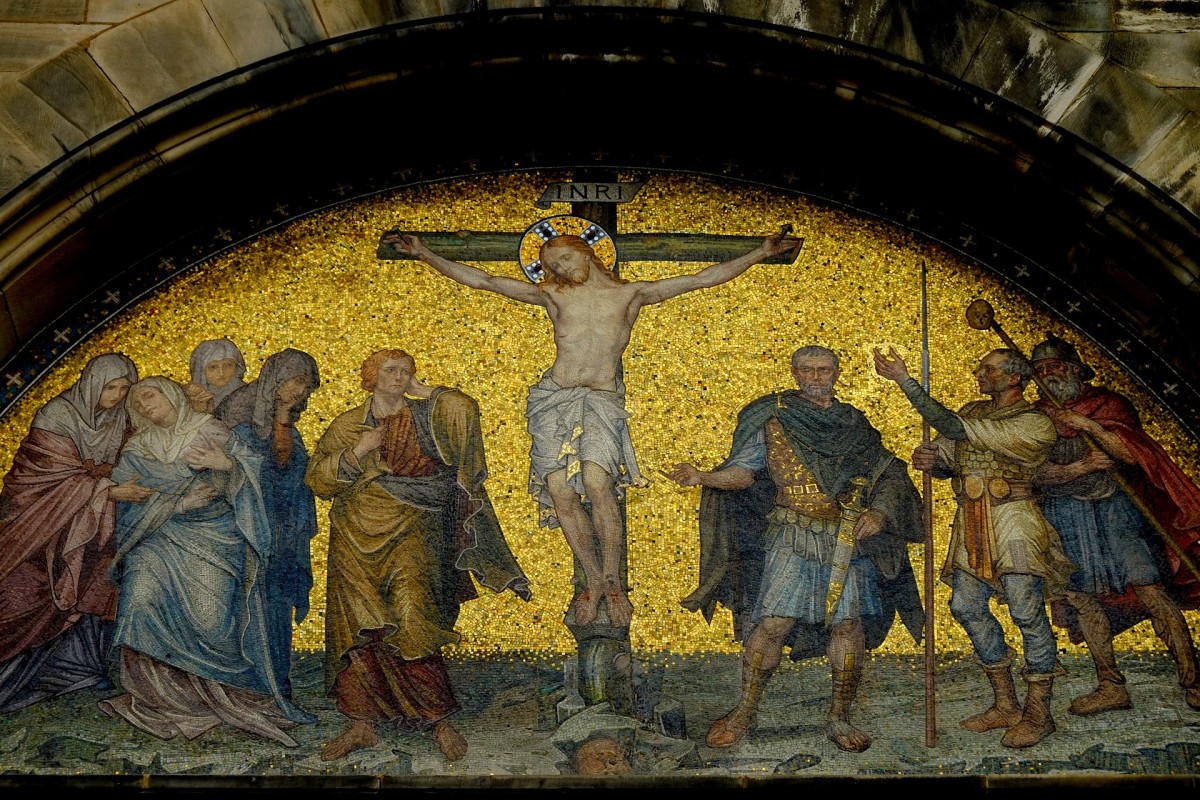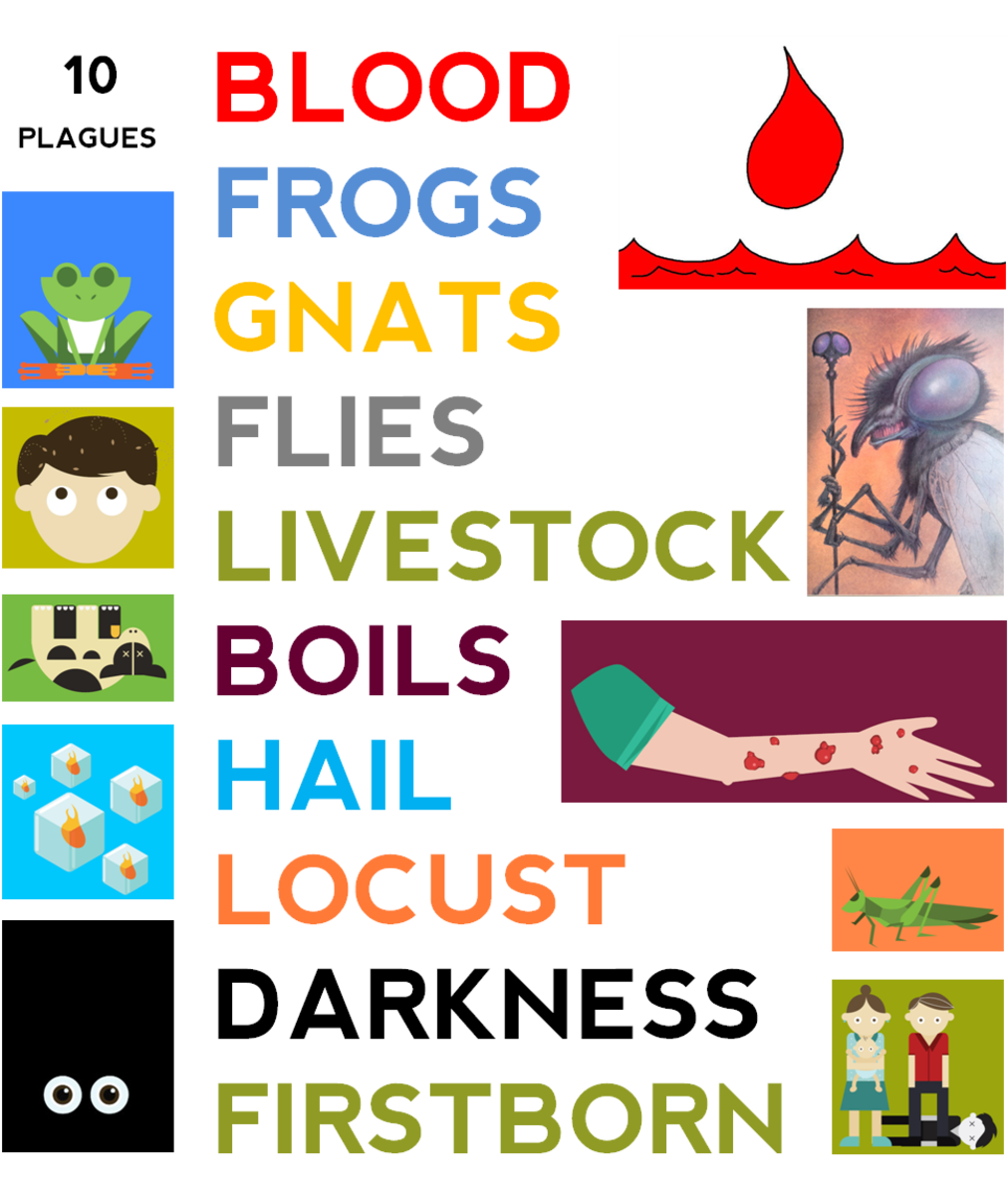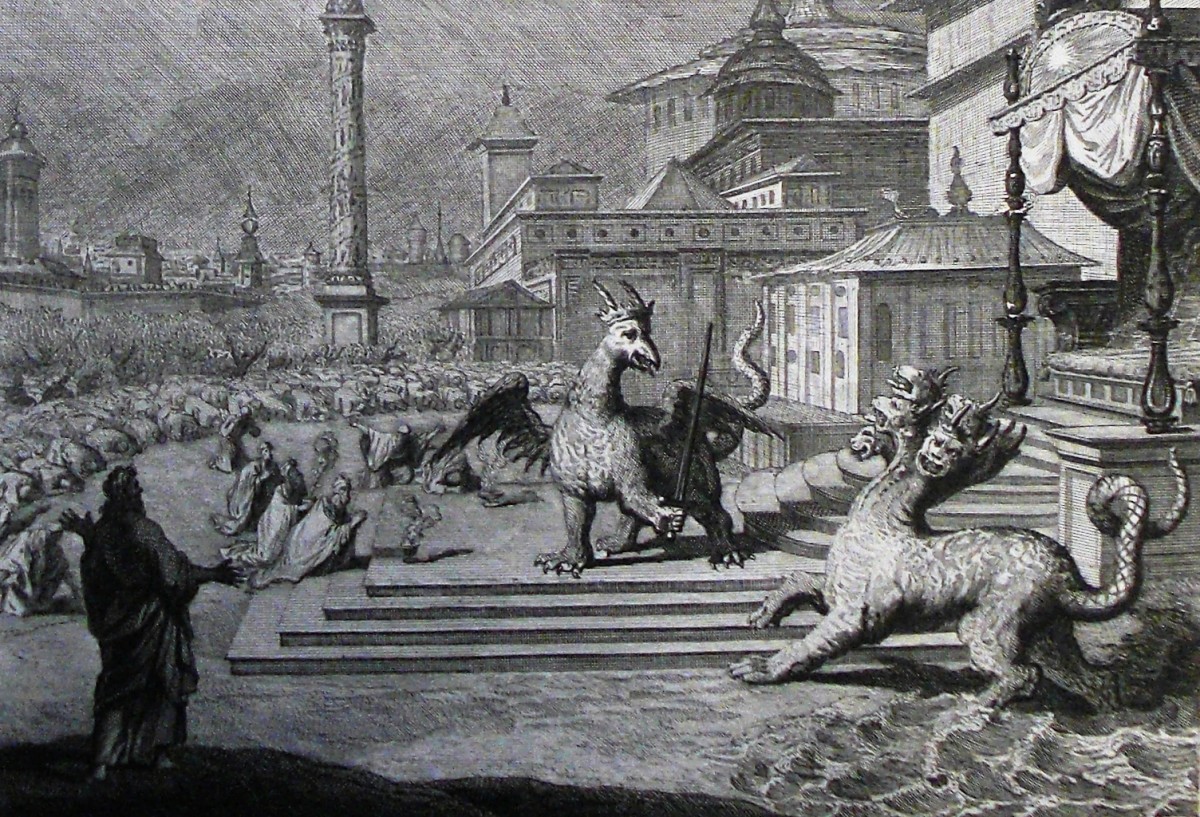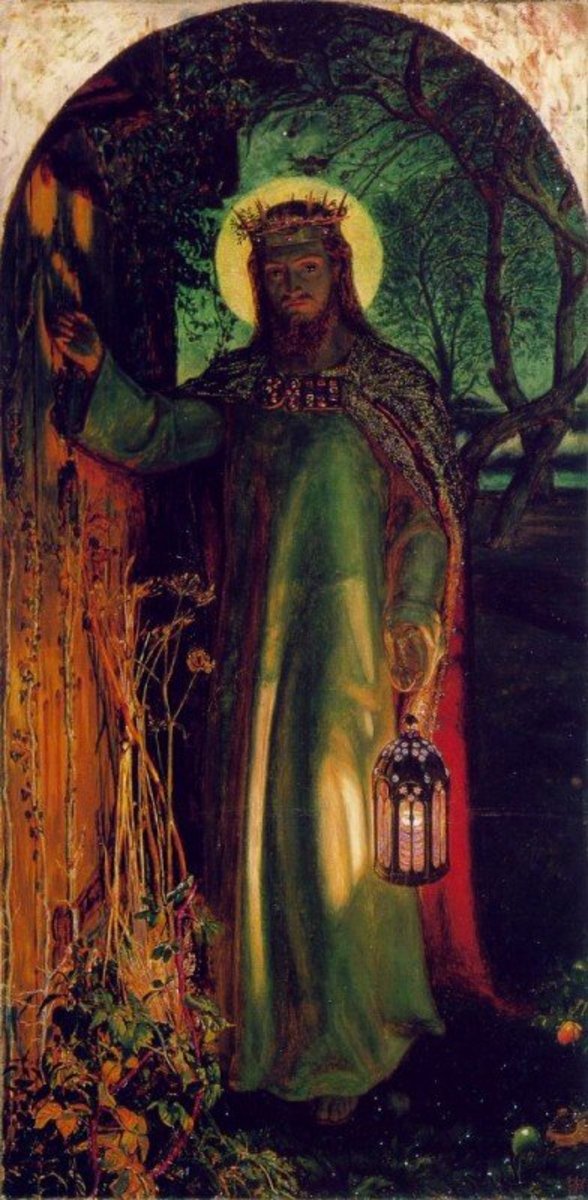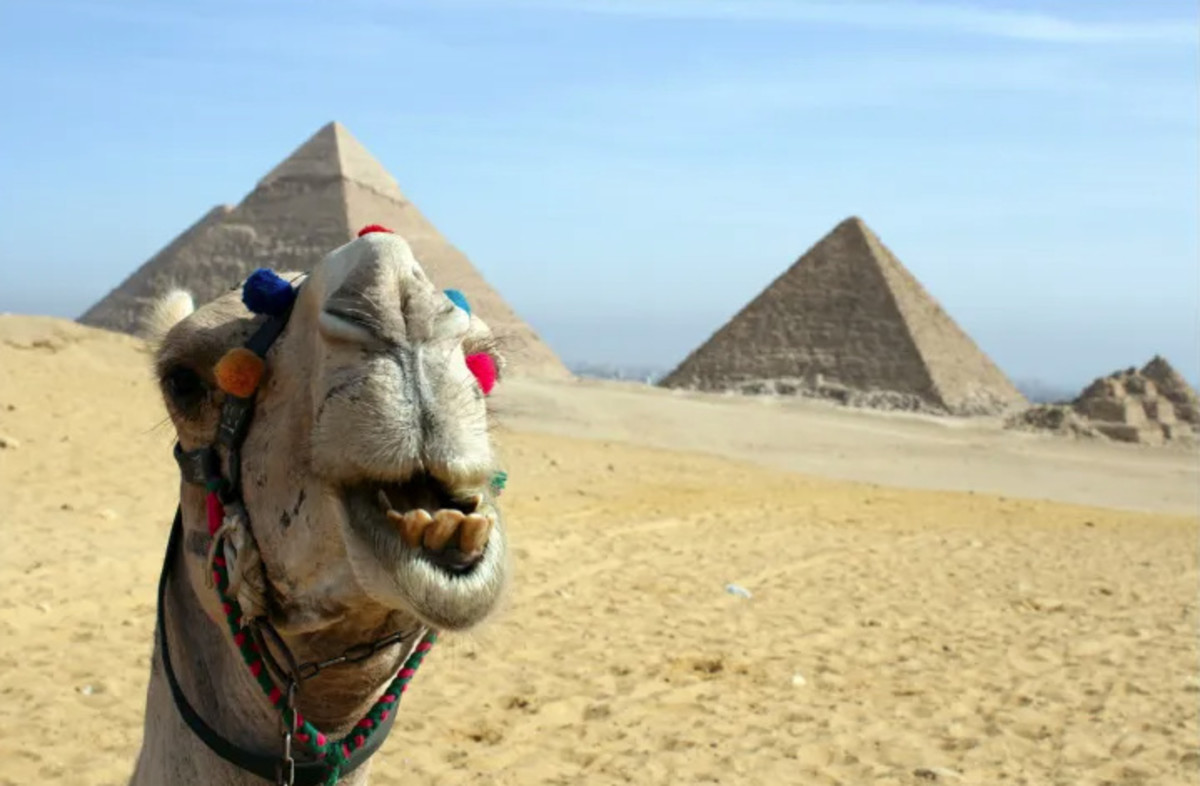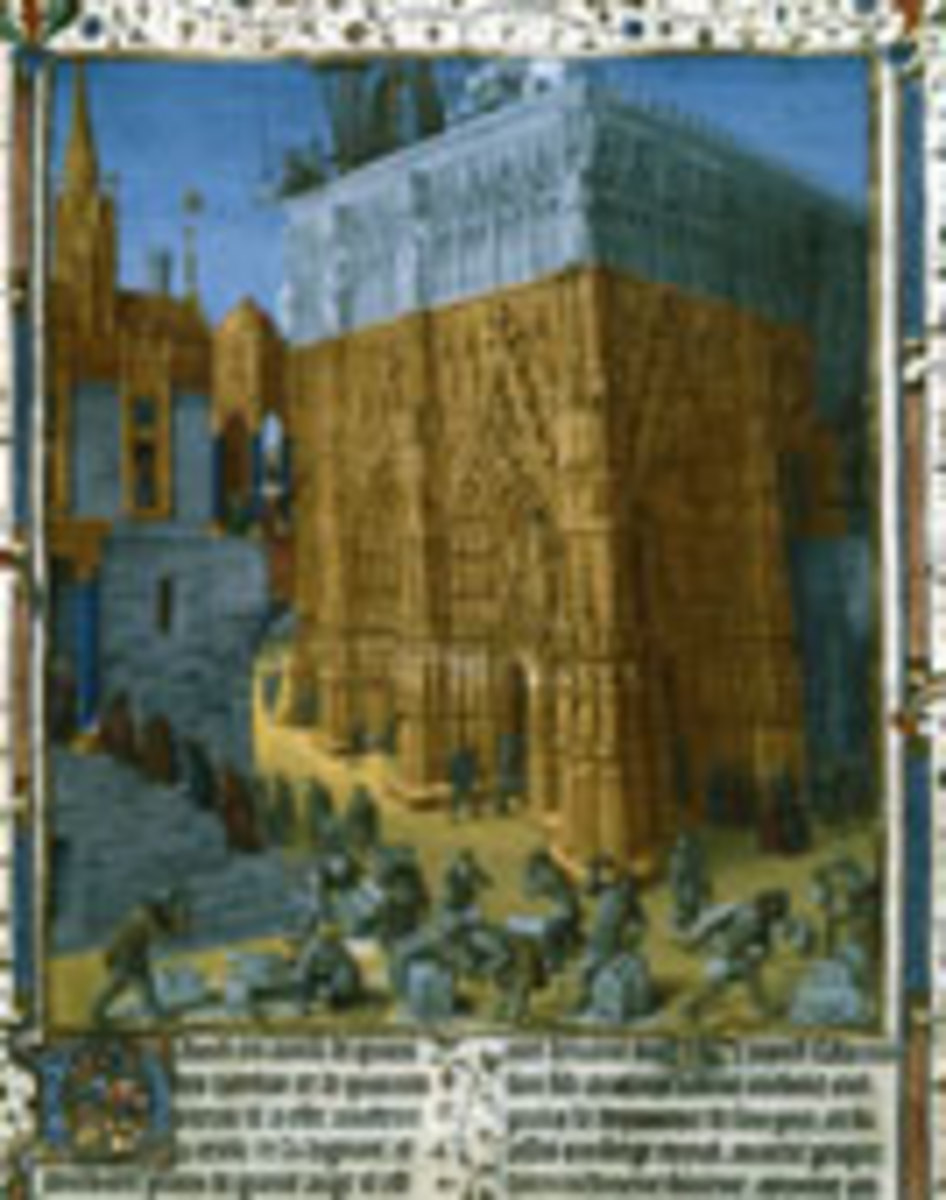Bible: What Does Ezekiel 29-32 Teach Us About Egypt?
Egypt
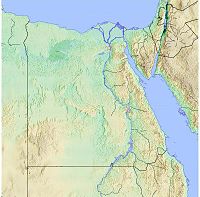
Against Egypt
EZEKIEL 29-32-- PROPHECIES AGAINST EGYPT
Ezekiel delivered this proclamation to Egypt a few months earlier than he proclaimed God’s word against Tyre (vv. 1-2; cf. 26:1).
Here Yahweh rebukes the proud Pharaoh, who thought himself the creator and master of the Nile (v. 3).
The LORD likens him to a great river monster that He planned to snare with all its "parasites" attached and expose it to predators (vv. 4-5).
The Egyptians will then come to know that the LORD is God; they will suffer because of their unfaithfulness to Israel (vv. 6-7).
Egypt's fall involves her complete territorial desolation; it will not allow her habitation for forty years (vv. 8-11).
Therefore, until this time is finished, the LORD will scatter the Egyptians (v. 12).
Then He will bring them back "a lowly kingdom"; in fact, Egypt will be the "lowliest of kingdoms" which will never again dominate other nations, but will instead remind Israel of their iniquity (vv. 13-16).
If the date in verse seventeen has the same starting point as that of verse one, then God promises Ezekiel that Nebuchadnezzar will fulfill the prophet's word against Egypt more than sixteen years in the future.
Egypt's plunder will serve as wages for Babylon's army which earlier had labored fruitlessly against Tyre (vv. 18-20).
That particular day is special for Israel and for Ezekiel, because Yahweh will open the prophet's mouth to speak to them (v. 21).
Purpose of Egypt's Destruction
view quiz statisticsNebuchadnezzar
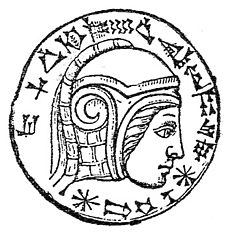
Ezekiel 30
Ezekiel's proclamation against Egypt continues with a warning to both her and her allies that their "day" of judgment is near (vv. 1-3).
In Egypt and Ethiopia many will die, the enemy will confiscate much property, and many "foundations" will break (v. 4).
Additional allies will fall (v. 5); verse six sets the geographical extent of the desolation.
Such destruction has a divine purpose: to convince the vanquished that Yahweh is the Judge (vv. 7-8).
Apparently, as Egypt burns, God sends messengers to Ethiopia to warn that nation of her future (v. 9).
Nebuchadnezzar is God's instrument to smite the land and its people (vv. 10-12).
Egypt's mighty cities—Noph, Pathros, Zoan, No, Sin, Aven, Pi Beseth, and Tehaphnehes—will fall victim to Babylonia.
Divine judgment will remove idols, strength, and princes from the once mighty nation, and add fear, desolation, great pain, daily distress, death, captivity, and darkness (vv. 13-19).
About three months after Ezekiel's last message against Egypt (cf. 29:1), God portrays the Pharaoh to the prophet as a man whose arm He has broken and no one has repaired (vv. 20-21).
The LORD purposes to reduce the king of Egypt to a weak monarch unable to defend himself (v. 22).
Pharaoh's people will scatter from him, and Nebuchadnezzar will subjugate the desolate leader (v. 23).
The latter appears to plead for mercy while in the throes of death (vv. 24-25).
God will work in such a way that every nation will know that He has caused Egypt's dispersal (v. 26).
Egypt Compared
view quiz statisticsEzekiel 31
About seven weeks later Ezekiel receives another word concerning Egypt (v. 1; cf. 30:20).
Verses two through nine is a poetic section, an extended metaphor, comparing Egypt's Pharaoh to the great "cedar" called Assyria.
Because an abundance of water surrounded and nourished it, this cedar grew strong and tall, having many boughs and long branches.
It also housed numerous birds, and provided shade for a multitude of beasts and nations (vv. 3-7).
It became the Tree among trees, even when likened to those from Eden, the garden of God (vv. 8-9).
God had also granted Egypt immense power and worldly influence, and it became the envy of other nations.
Pharaoh's pride ("its heart was lifted up in its height") causes the nation’s downfall at the "hand of the mighty one of the nations" (vv. 10-11).
Yahweh speaks of "aliens, the most terrible of the nations"—Babylonians—as having already precipitated its ruin and disrupted the lives of countless others (v. 12; cf. 30:11).
Plunderer and scavenger nations ensure that "cedars" (such as Assyria and Egypt) can never again exalt themselves over other trees (vv. 13-14a).
The poetry of verse 14b suggests that all proud "trees" descend to the "depths of the earth." By sending the "cedar" to “hell” to join others, Yahweh elicits international mourning (vv. 15-17).
Ezekiel then reintroduces the original question posed to Pharaoh: "To whom should you be likened"?
The answer is obvious: the LORD will make him, along with the trees of Eden, to "lie in the midst of the uncircumcised" (v. 18).
The River Nile
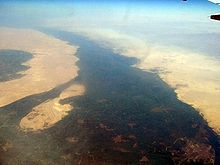
Ezekiel 32
One year and nine months later, the prophet accepts a lamentation for Pharaoh from Yahweh (vv. 1-2a; cf. 31:1).
Again, He compares the king of Egypt to a young lion, and to a sea monster causing havoc among "neighbors" (v. 2b).
[Bodies of water, here as elsewhere in this context, refer to neighboring lands].
God will treat Pharaoh in the same way an uncaring whaler does his catch: He will drag him up in a net and expose him to the hostile elements and to his natural enemies (vv. 3-5).
Birds and beasts will feast on him, and his blood will flow freely.
When this disaster happens to Pharaoh, no "light," however dim, will shine on Egypt (vv. 7-8), and her neighbors will blanch with fear when they hear about her fall (vv. 9-10).
Yahweh designates the sword of Nebuchadnezzar and those of "the most terrible of nations" as the cause of Egypt's demise (vv. 11-12).
This army plunders and destroys both man and beast to such an extent that the Nile and its tributaries run clear; no one is left to muddy their waters (vv. 13-14).
God's judgments upon land and life of all kinds will convince Egypt that Yahweh is Master (v. 15). The inhabited earth seems to lament Egypt's fall (v. 16).
Dwelling Place of the "Uncircumcised"
view quiz statisticsTwo weeks later (cf. 32:1) God gives Ezekiel another message about Egypt and other nations (v. 17), telling the prophet to mourn over them and even participate in their judgment ("cast them down") [v. 18].
Egypt's beauty will not deliver her from the pit (v. 19); the sword will devour her and all her multitudes (v. 20).
A message from "the strong among the mighty" regarding his destruction will come from Hell to the ears of Egypt (v. 21):
(1) Assyria resides in the Pit, a victim of the slaying sword (vv. 22-23).
(2) Elam, likewise, has died "unsaved" and dwells shamefully in Hell—all killed by the sword (vv. 24-25).
(3) Meshech and Tubal follow as one-time terrors in the earth, but now lie in shame with those slain (vv. 26-28).
(4) Edom and Sidon similarly "lie with the uncircumcised," being "slain by the sword" and are made to "bear their shame with those who go down to the Pit" (vv. 29-30).
Apparently, the fact that he is not alone as one slain by the sword will comfort the Egyptian monarch (vv. 31-32).
© 2014 glynch1

